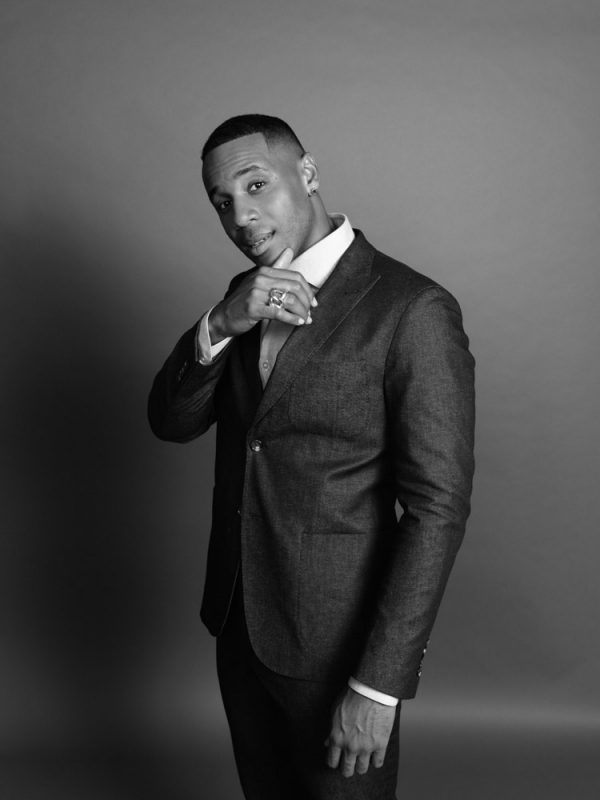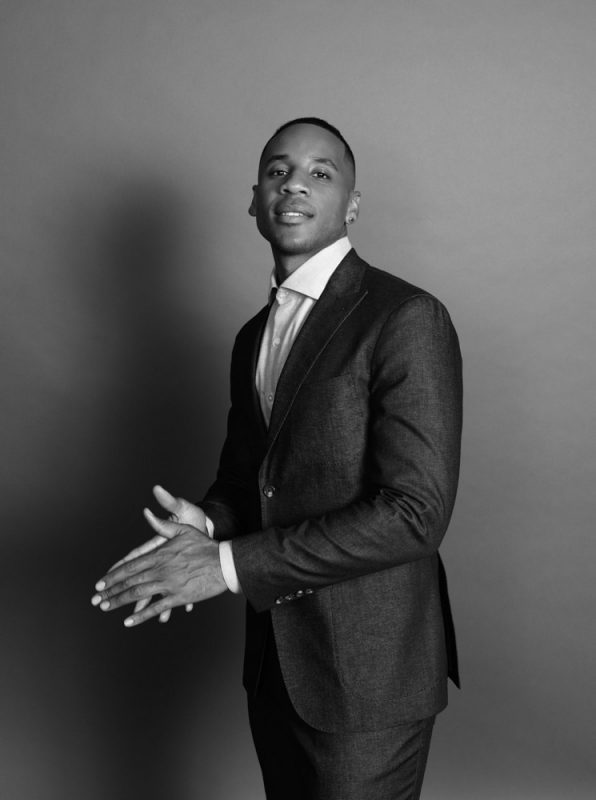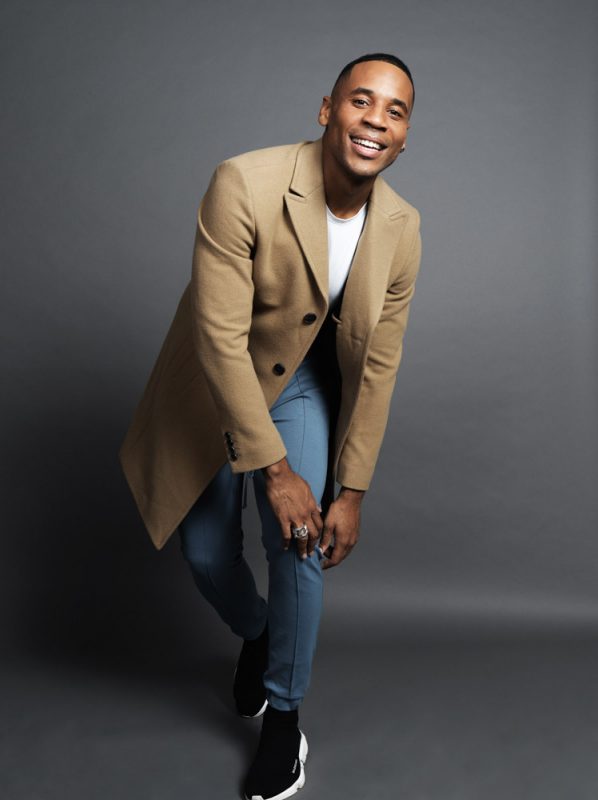Fault Magazine In Conversation With Reggie Yates Pt.2
Photography Joseph Sinclair | Styling Rachel Gold @ Red Represents | Lauren Alice @MandyCoakleyRepresents using Medik8 and La Roche Posay
Words: Miles Holder
Last time we met up with Reggie Yates, we discussed his experience as a documentary maker, growing up in the spotlight and his career goals – you can see PT.1 of our interview HERE. With the release of his new book ‘Unseen: My Journey by Reggie Yates’, we caught back up with Reggie to discuss the motivations behind the book, the most impactful passages and what else we can expect to see from his career that keeps on giving.
Hi Reggie, can you talk us through why you chose to release ‘Unseen: My Journey by Reggie Yates’, and why now?
I presented the idea because I realised I had a responsibility thanks to the position my life is in at the moment. My voice is the loudest it’s ever been, and I feel like I’m using it responsibly through my documentaries but not releasing enough content, and the book is another way I could help effect change. It’s not an autobiography, that’s something I’ll do at a much later date, it’s a book about the documentaries and what drove me to make them and where my mind was at that time.
Why did you feel that it was important to share these stories?
I think sharing that was important because, for 19-year-old me, there was no one talking about challenges they had faced in the industry. I didn’t have stories about what it means to be a minority within a minority within a minority, to be the only person of colour on the studio floor with hundreds of other people but it was me holding the microphone. I wasn’t very prepared for the feeling of saying something and having people not get it, or find it aggressive because they lacked cultural understanding. It’s not their fault; there just wasn’t a point of reference for them at the time.
Did you write the book while you were shooting or is it in retrospect taken from memoirs?
I wish I had time to write while I was shooting. I would write down everything I remember, then rewatch the documentary to jog my memory. I spoke to friends, and my director about what they remembered about me when I got home from filming and all of that makes it into the book.
In the chapter ‘Riots and Me’ you speak about the young black London kids who at the time were angry. You go throughout the chapter drawing on your shared experiences, but are you also conscious that the Reggie Gates experience is maybe a million miles detached from the environment those children grew up in?
That’s a good point, and I am aware that for a lot of the people I talk to, sometimes the only common ground we share is the fact that we’re both humans. When I draw on loosely shared experiences, it’s a way of me trying to bridge the gap between the audience and the people I’m interviewing so we can have a greater understanding of what drives the person’s decisions. I’m not desperately trying to find similarities, and it’s just me trying to find out and understand why they are the way they are.
There’s a passage in your book where you talk about a makeup artist applying makeup “two shades too light” for you; it’s a passage which resonated with me because I understood that as a grievance for black models and black people on TV in general which many don’t speak up about. It’s subtlely mentioned, and might fly over the heads of readers who don’t understand the significance but why was it so important for you to include the passage in your book?
It’s actually from the very first paragraph, and it’s funny, that even as a child I recognised something was wrong with that, and you’re the very first person to recognise that passage for what it was, which says a lot about how oblivious many are to the minority experience in the industry. We notice things on a daily basis but have to rise above it quietly because we don’t want to upset people with our “blackness”. I put it in the book because I don’t think people recognise how exhausting it can be to bite your tongue through those situations but people are out there trying to change that, and I believe we will.
Every project we get to see a different side of you, are there any topics that you haven’t had a chance to speak about thoroughly?
I cover a lot of it in the book, but no one has ever unpacked with me what it means to be black and on television in the UK. What it means to have ambitions in the media but be from a working-class background be you white or black. To me “diverse” means to be “the other” and it’s important that when I say “the other” or “diverse” that people understand that I also include many white communities and working-class white people in that. All of these diverse perspectives are entirely lost in the media sometimes, and you don’t see people like us on any grand scale or any drive to change or understand that. We talk about investing in talent but it’s always talent that’s already on its way up, and there’s not enough put into developing new talent.
What’s the next step for Reggie Yates?
I have an exhibition with Amnesty International, and I’m also exhibiting at The Tate, I have a lot of photography going in there, and hopefully one day I’ll release a photobook because I have over 15 years of imagery which I’m proud of.
Do you have a favourite photographer?
I’d have to say Viviane Sassen, I got given her ‘Flamboya’ photobook for Christmas years ago, and found it so inspiring. She finds the middle ground between art and photography which is something that I’m interested in doing and her a lot of her work looks like sculpture and paintings; that’s where I want to be.
A lot of Viviane Sassen’s work is praised for showing the real beauty of being “the other” – in many ways that’s what you’re already doing in your documentary work.
I think that’s what draws me to her work; it’s interesting seeing her go from fascinating art projects to doing an ACNE campaign and photographing it in the same way she’d shoot East-African men on the beach. I’m fascinated by her work because she is an artistic photographer but the way the fashion world is embracing her has helped blur the line between art and fashion, and that’s what I love to see.
Unseen: My Journey by Reggie Yates published by BBC Books, price £18.99 | THE INSIDER S2 is available on BBC3


